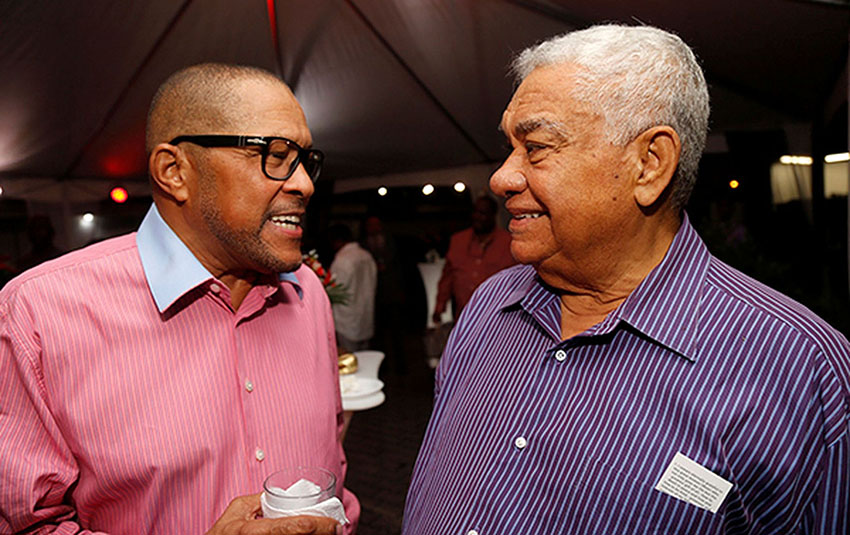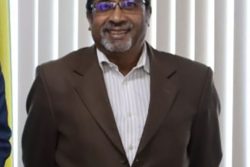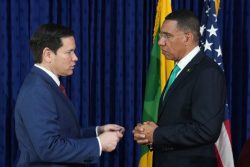(Trinidad Guardian) Former CL Financial (CLF) executive chairman Lawrence Duprey has been ordered to pay over US$122 million in damages to the company’s former subsidiary in the Bahamas over a failed land development in Florida.
Delivering a 16-page judgement at the Hall of Justice in Port-of-Spain yesterday, High Court Judge Ricky Rahim dismissed Duprey’s defence to the multi-million dollar lawsuit in which British American Insurance Company Ltd (Baico) was seeking the recover the money, which represents the damages awarded to it by the United States Bankruptcy Court in the South District of Florida in July last year.
Provided that Duprey does not appeal Rahim’s decision, the company, based in Nassau, Bahamas, can move ahead to have Duprey’s local assets seized by the court and auctioned off to clear the debt.
During yesterday’s hearing, Rahim granted Duprey’s lawyers a 28-day stay of judgment for them to consider whether to appeal.
As part of the ruling, Duprey is also required to foot 55 per cent of Baico’s legal bill for bringing the claim as well as interest on the judgement amount.
In his defence, Duprey was challenging the US court’s ruling, claiming it was in breach of natural justice as he was not represented by an attorney during the hearings and was not aware of the status of the case.
But Rahim rejected Duprey’s claims as he pointed out that Duprey’s attorney only withdrew from the US case when it had already reached an advanced stage. He also stated that the evidence showed that Duprey was kept informed of the progress of the case, as he was regularly emailed by court officials after his attorney withdrew.
While Duprey claimed he is not tech savvy and needed assistance in reading and replying to emails, the evidence showed that he had communication with the court via email during the hearings in Florida.
“Consequently, the court finds that the defendant’s claims of being unaware of the email were disingenuous,” Rahim said.
The proceedings in the US were over Duprey’s breach of fiduciary duty in the company’s investment in the Green Island real estate development in Osceola County, Florida.
Baico invested US$295 million in the project which resulted in over US$100 million in losses. The losses forced the company into insolvency and led to subsequent multi-national insolvency proceedings. Baico first filed its US lawsuit against Duprey and its other executives in September 2009.
While the executives came to out of court settlements with the company, Duprey, a former director and former chairman Brian Branker continued to challenge the claim. Duprey, Branker and their attorneys were active in the case initially, as they opposed several aspects of Baico’s claim.
After Duprey and his legal team were absent from the proceedings periodically between 2013 and 2015, the company obtained a default judgement against the duo.
Duprey then challenged the default judgement, as he claimed his attorney had withdrawn for the case and he was not aware of its status. These arguments were rejected by US Judge Erik Kimball in July last year.
Duprey did not appeal the judgement in the US, as he claimed he was prevented by health and financial constraints. Duprey raised the issues in his defence against the claim before Rahim but they were rejected as they were not substantiated by evidence.
Baico was forced to file the local proceedings against Duprey after he moved back to Trinidad and Tobago without paying the US court-ordered damages. The local action was required as there is no legislative arrangement for the registering US judgements in T&T.
Baico was represented by Andre Rudder and Bryan McCutcheon, while Vivek Lakhan-Joseph represented Duprey.
In an immediate response afterwards, Lakhan-Joseph said, “Our client has expressed his respectful contention with the earlier High Court decision and is seriously considering the prospect of an urgent appeal, the strength and merits of which he is confident in. Mr Duprey has reiterated his unwavering commitment to exonerate himself from these matters with a view to ensuring his vindication.”
About CLF Financial
The company began with the founding of Colonial Life Insurance Company (Clico) by Lawrence Duprey’s uncle Cyril. During his tenure at the helm, Duprey grew the company into one of the largest conglomerates in the Caribbean, with 65 companies in 32 countries across the world.
In 2009, the Government, through the Central Bank, took control of the cash-strapped conglomerate after Duprey and the company’s executives asked for a bailout.
Between 2011 and 2014, Sir Anthony Colman held a Commission of Enquiry into the collapse of the company and the Hindu Credit Union (HCU).
Last year, the Government successfully petitioned the High Court to wind up the company, as it was still owed most of the over $20 billion that was used for the bailout.
The conglomerate’s large shareholdings in Republic Financial Holdings Limited (Republic Bank), West Indian Tobacco Company Limited (Witco), Angostura Holdings Limited, One Caribbean Media Limited (OCM) and Trinidad Generation Unlimited were later vested in the National Investment Fund Holding Company Limited (NIF).
Between July and August, NIF offered fixed income bonds to corporate and individual citizens in a drive to raise $4 billion.
The company’s collapse also led to a number of lawsuits from policyholders and investors seeking to recoup their investments.









